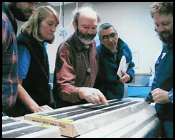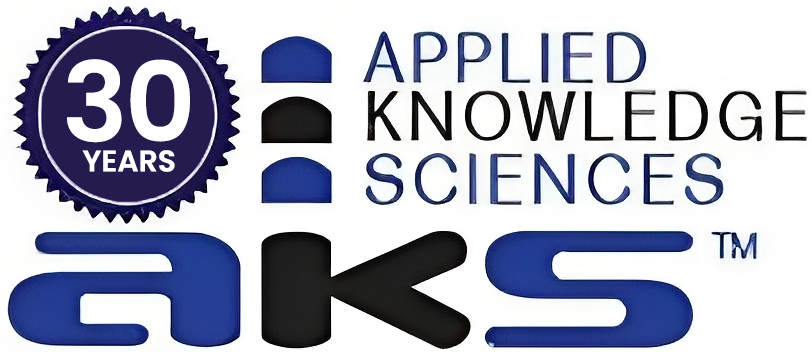Knowledge Transfer Mentoring:
Turning knowledge loss into rapid learning and growth
Your critical knowledge at risk
You may recall the warnings from over a decade ago. Up to forty percent of the workforce was going to retire in five years, taking their knowledge with them.

At long last, the great retirement wave has arrived. After all the pandemic-related lockdowns and layoffs, large numbers of employees with 30 or more years of experience are leaving. This is happening at a time when budgets are tight, demographics are shifting, and the speed of change in the marketplace is accelerating.
Back when the warnings sounded, attempts to pick a seasoned expert's brain were often met with howls. "What??? You want me to tell you what it’s taken me years to figure out, just so you can give it to someone with half my salary and show me the door? No way!!!"
What a difference a decade makes. Now when that same expert tries to set a retirement date, the boss is the one doing the howling. "But you can't leave…nobody else can do what you do!"
Organizations are scrambling to take actions they should have taken years ago. But it’s not just the retirements. It’s the risk of knowledge loss in general.
For instance, having only one “go-to” person in a particular area creates bottlenecks and missed opportunities. Too much time, money and resources are wasted from repeated errors and redundant effort (“re-inventing the wheel”). Despite all of this, few organizations have a systematic, repeatable process for dealing with the problem of knowledge loss.
Setting up and implementing such a process isn’t easy. Lack of time, money and other resources, along with deeply entrenched political and cultural barriers, are just a few of the obstacles you’re likely to encounter.
An effective way to continually capture and transfer knowledge

One glimmer of hope has been the tried and proven custom of mentoring. For a variety of reasons, mentoring is well-suited for passing along the deep dark secrets and painful lessons learned over the course of one’s career. But such an approach also has its problems. Transferring all of an expert’s knowledge is neither desirable nor practical. Also, one-on-one mentoring tends to be very informal, and may overlook key aspects of a mentor’s knowledge, leaving the mentee struggling to fill in the missing pieces after the mentor has departed.
Worse yet, the original problem persists. Critical knowledge still resides in only one person’s head. Only now it’s a different person with a different view of what it all means.
We aim to address this problem by building on the tradition of mentoring in a more organized and systematic way in which knowledge flows not to one, but many individuals. The knowledge also becomes more open so it can be improved upon in ways that benefit your entire organization.
Knowledge loss vs. knowledge gain

The end result is your organization’s critical knowledge no longer rests with one individual. Instead, it’s habitually captured, shared, applied and expanded across your entire enterprise.
The benefits are significant. Faster and better decisions mean less time and resources wasted from repeated mistakes, redundant effort and missed opportunities. More people with critical knowledge in a particular area means fewer bottlenecks, the elimination of single points-of-failure, and increased capacity to prepare for and respond to “pop-up” problems and opportunities.
Another key benefit is the improved ability to attract and retain talent. Mentors will gain the satisfaction of leaving a legacy and watching it grow to new heights. Mentees will not only have the opportunity to learn from the best, but to contribute their own insights and new ideas as well.
More importantly, a knowledge-sharing organization innovates and learns at a faster rate. This can mean the difference between falling behind or keeping pace with and even leading the changes in your market.
How to get started...
The window of opportunity to create a stable, reliable process for transferring and growing your organization’s most valuable knowledge is rapidly closing. But there are some basic steps you can take, beginning with interviewing your executive management and key individuals. With these initial interviews, you can begin to identify that knowledge in your organization with the greatest risk of loss.
You should also review the demographics and trends of your workforce. You will then be ready to begin formulating a knowledge transfer plan aimed at achieving the right balance of time and resources invested in order to obtain the best results.
The knowledge transfer mentoring products and services we provide are the result of over three decades of university-based research and direct application in organizations of all sizes, spanning the public, private and non-profit sectors all around the globe. Whether you need only a few days to document and demonstrate a specialized procedure, or a year or more to turn an “army of one” into a global community of practice, we can help.
Once you start down the road to knowledge transfer mentoring, you’ll never have to worry about any future retirement waves that may be lurking down the road.
Additional reading
Contact us
Go ahead...ask us anything!
Subscribe
Coming soon - access to our entire body of knowledge on knowledge transfer mentoring, curation and governance...
